

101 Creative Writing Exercises
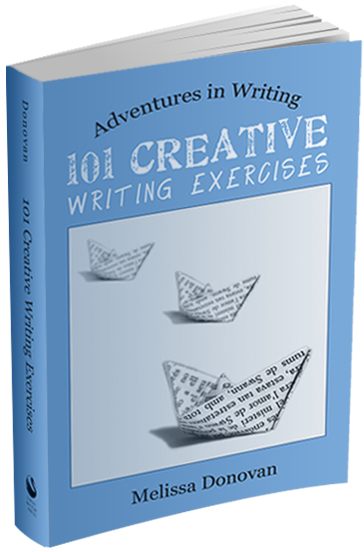
If you’ve been searching for a goldmine concerning all-things-writing you need look no further.
Really, working through this book in what ever order will best serve your learning or practicing needs is certain to improve your skills. I love writing and participate in writing in one form or another almost every day. Yet, as I recently spent time working through just two different exercises as set forth in this book I learned new skills.
The author suggests that moving out of one’s comfort zone is a good way to improve skills and gain writing experience. At first I wondered why I would try something that I’ve believed would be too hard for me. My writing typically focuses on the here and now, facts and information. Yet, I took pen in hand (later went to the keyboard) and began the first exercise in the beginning section of Writing Fiction.
My first hesitant steps were soon overcome by the exhilaration I felt when I began to realize that my imagination was kicking in. I was beginning to see scenes in my mind which I could translate to paper. I was setting the scene for a fictional account which I could make “real” by continuing to follow the steps as laid out in this book.
As another part of my experiment I followed one of the prompts which was more suited to what I usually write about. Once again, I felt as if I had found gold. Ms. Donovan’s simple step by step system and suggested tactics do indeed serve to make the writing experience quite productive. With these easy to follow instructions and suggestions long time writers and beginners alike are given ways to improve their writing. Period.
I highly recommend this book to anyone who really wants to learn more about the art and science of writing.
This book could well be used as a course study…
“…for anyone who wants to try a hand at writing or to improve writing skills. The book is broken down into several topics including freewriting, journaling, fiction, storytelling, etc. Along with each topic discussed there is an exercise to complete. Great for anyone who wants a new twist on just about every type of writing there is.”
“I was researching books to use as a resource for an online creative writing resource that I teach, and I found this one to be most helpful. If I run the class again, I am considering adopting this as the primary text.”
Doing the exercises in this book made me enjoy writing again..
“I am working on my first novel and ran into some serious writers block. My story was going nowhere. I hated everything I wrote. I was going to give up and quit writing forever. 101 Creative Writing Exercises helped me get over my writers’ block.
The exercises gave me inspiration for my novel. I found the character freewriting to be very helpful. I could not find my characters voice. The solution freewriting exercise was also very helpful. This helped me work out key plot issues. Instead of sitting and staring at a blank computer screen and getting nowhere, I came up with ideas when I wrote with pen and paper.
I would recommend this book to any writer who has writers block and wants to give up writing.”
I was in a slump and couldn’t think of what to write about, so I purchased 101 Creative Writing Exercises.
“I found so many ideas there that I had trouble deciding which one to try first. So, what I’m working on now is as a result of one of the exercises in this book. I now have a way to come up with new writing ideas when writer’s block sticks its ugly head into my life again.”
101 Creative Writing Exercises only pushed me further in my writing journey.
“I look back to it from time to time, whenever I’m feeling a little dull in my ideas and it is always there to spark my mind and allow my brain and heart to work together to create something magical. If you’re looking for fun, thorough and honest writing advice, this is an awesome place to start! No regrets with this purchase!”
I really enjoyed 101 Creative Writing Exercises
“I read the book first and noted specific exercises that interested me. The practice work and discipline required for each activity carried over to other writing tasks including our writing group. Good for experienced or novice writers. In summary, it really is a writing coach and a lot of fun.”
Get Your Copy of 101 Creative Writing Exercises Today
Pin it on pinterest.
- Writing Activities
105 Creative Writing Exercises To Get You Writing Again
You know that feeling when you just don’t feel like writing? Sometimes you can’t even get a word down on paper. It’s the most frustrating thing ever to a writer, especially when you’re working towards a deadline. The good news is that we have a list of 105 creative writing exercises to help you get motivated and start writing again!
What are creative writing exercises?
Creative writing exercises are short writing activities (normally around 10 minutes) designed to get you writing. The goal of these exercises is to give you the motivation to put words onto a blank paper. These words don’t need to be logical or meaningful, neither do they need to be grammatically correct or spelt correctly. The whole idea is to just get you writing something, anything. The end result of these quick creative writing exercises is normally a series of notes, bullet points or ramblings that you can, later on, use as inspiration for a bigger piece of writing such as a story or a poem.
Good creative writing exercises are short, quick and easy to complete. You shouldn’t need to think too much about your style of writing or how imaginative your notes are. Just write anything that comes to mind, and you’ll be on the road to improving your creative writing skills and beating writer’s block .
Use the generator below to get a random creative writing exercise idea:
List of 105+ Creative Writing Exercises
Here are over 105 creative writing exercises to give your brain a workout and help those creative juices flow again:
- Set a timer for 60 seconds. Now write down as many words or phrases that come to mind at that moment.
- Pick any colour you like. Now start your sentence with this colour. For example, Orange, the colour of my favourite top.
- Open a book or dictionary on a random page. Pick a random word. You can close your eyes and slowly move your finger across the page. Now, write a paragraph with this random word in it. You can even use an online dictionary to get random words:
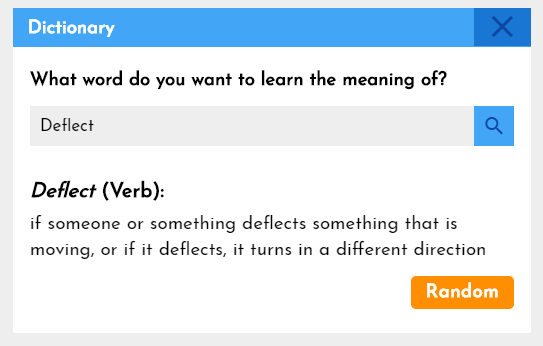
- Create your own alphabet picture book or list. It can be A to Z of animals, food, monsters or anything else you like!
- Using only the sense of smell, describe where you are right now.
- Take a snack break. While eating your snack write down the exact taste of that food. The goal of this creative writing exercise is to make your readers savour this food as well.
- Pick a random object in your room and write a short paragraph from its point of view. For example, how does your pencil feel? What if your lamp had feelings?
- Describe your dream house. Where would you live one day? Is it huge or tiny?
- Pick two different TV shows, movies or books that you like. Now swap the main character. What if Supergirl was in Twilight? What if SpongeBob SquarePants was in The Flash? Write a short scene using this character swap as inspiration.
- What’s your favourite video game? Write at least 10 tips for playing this game.
- Pick your favourite hobby or sport. Now pretend an alien has just landed on Earth and you need to teach it this hobby or sport. Write at least ten tips on how you would teach this alien.
- Use a random image generator and write a paragraph about the first picture you see.
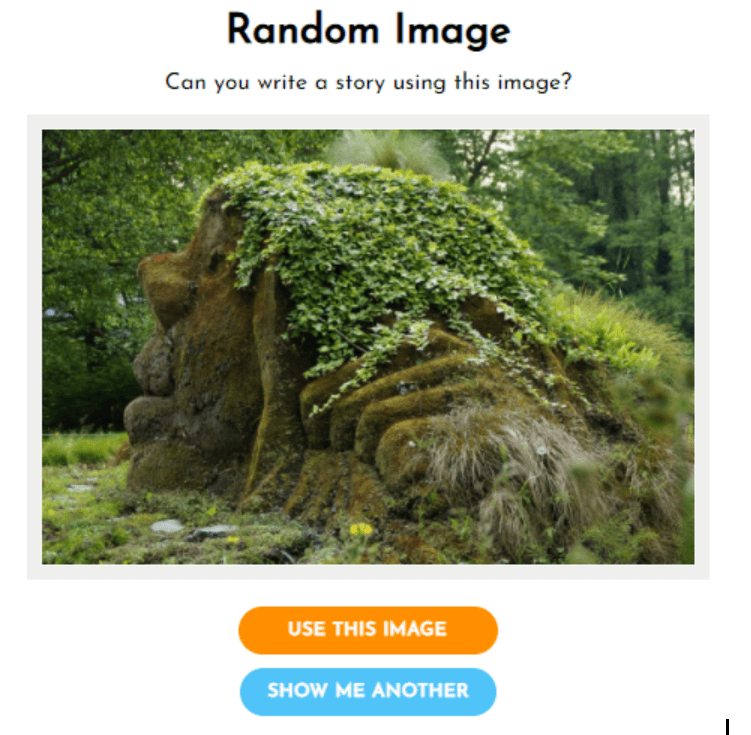
- Write a letter to your favourite celebrity or character. What inspires you most about them? Can you think of a memorable moment where this person’s life affected yours? We have this helpful guide on writing a letter to your best friend for extra inspiration.
- Write down at least 10 benefits of writing. This can help motivate you and beat writer’s block.
- Complete this sentence in 10 different ways: Patrick waited for the school bus and…
- Pick up a random book from your bookshelf and go to page 9. Find the ninth sentence on that page. Use this sentence as a story starter.
- Create a character profile based on all the traits that you hate. It might help to list down all the traits first and then work on describing the character.
- What is the scariest or most dangerous situation you have ever been in? Why was this situation scary? How did you cope at that moment?
- Pretend that you’re a chat show host and you’re interviewing your favourite celebrity. Write down the script for this conversation.
- Using extreme detail, write down what you have been doing for the past one hour today. Think about your thoughts, feelings and actions during this time.
- Make a list of potential character names for your next story. You can use a fantasy name generator to help you.
- Describe a futuristic setting. What do you think the world would look like in 100 years time?
- Think about a recent argument you had with someone. Would you change anything about it? How would you resolve an argument in the future?
- Describe a fantasy world. What kind of creatures live in this world? What is the climate like? What everyday challenges would a typical citizen of this world face? You can use this fantasy world name generator for inspiration.
- At the flip of a switch, you turn into a dragon. What kind of dragon would you be? Describe your appearance, special abilities, likes and dislikes. You can use a dragon name generator to give yourself a cool dragon name.
- Pick your favourite book or a famous story. Now change the point of view. For example, you could rewrite the fairytale , Cinderella. This time around, Prince Charming could be the main character. What do you think Prince Charming was doing, while Cinderella was cleaning the floors and getting ready for the ball?
- Pick a random writing prompt and use it to write a short story. Check out this collection of over 300 writing prompts for kids to inspire you.
- Write a shopping list for a famous character in history. Imagine if you were Albert Einstein’s assistant, what kind of things would he shop for on a weekly basis?
- Create a fake advertisement poster for a random object that is near you right now. Your goal is to convince the reader to buy this object from you.
- What is the worst (or most annoying) sound that you can imagine? Describe this sound in great detail, so your reader can understand the pain you feel when hearing this sound.
- What is your favourite song at the moment? Pick one line from this song and describe a moment in your life that relates to this line.
- You’re hosting an imaginary dinner party at your house. Create a list of people you would invite, and some party invites. Think about the theme of the dinner party, the food you will serve and entertainment for the evening.
- You are waiting to see your dentist in the waiting room. Write down every thought you are having at this moment in time.
- Make a list of your greatest fears. Try to think of at least three fears. Now write a short story about a character who is forced to confront one of these fears.
- Create a ‘Wanted’ poster for a famous villain of your choice. Think about the crimes they have committed, and the reward you will give for having them caught.
- Imagine you are a journalist for the ‘Imagine Forest Times’ newspaper. Your task is to get an exclusive interview with the most famous villain of all time. Pick a villain of your choice and interview them for your newspaper article. What questions would you ask them, and what would their responses be?
- In a school playground, you see the school bully hurting a new kid. Write three short stories, one from each perspective in this scenario (The bully, the witness and the kid getting bullied).
- You just won $10 million dollars. What would you spend this money on?
- Pick a random animal, and research at least five interesting facts about this animal. Write a short story centred around one of these interesting facts.
- Pick a global issue that you are passionate about. This could be climate change, black lives matters, women’s rights etc. Now create a campaign poster for this global issue.
- Write an acrostic poem about an object near you right now (or even your own name). You could use a poetry idea generator to inspire you.
- Imagine you are the head chef of a 5-star restaurant. Recently the business has slowed down. Your task is to come up with a brand-new menu to excite customers. Watch this video prompt on YouTube to inspire you.
- What is your favourite food of all time? Imagine if this piece of food was alive, what would it say to you?
- If life was one big musical, what would you be singing about right now? Write the lyrics of your song.
- Create and describe the most ultimate villain of all time. What would their traits be? What would their past look like? Will they have any positive traits?
- Complete this sentence in at least 10 different ways: Every time I look out of the window, I…
- You have just made it into the local newspaper, but what for? Write down at least five potential newspaper headlines . Here’s an example, Local Boy Survives a Deadly Illness.
- If you were a witch or a wizard, what would your specialist area be and why? You might want to use a Harry Potter name generator or a witch name generator for inspiration.
- What is your favourite thing to do on a Saturday night? Write a short story centred around this activity.
- Your main character has just received the following items: A highlighter, a red cap, a teddy bear and a fork. What would your character do with these items? Can you write a story using these items?
- Create a timeline of your own life, from birth to this current moment. Think about the key events in your life, such as birthdays, graduations, weddings and so on. After you have done this, you can pick one key event from your life to write a story about.
- Think of a famous book or movie you like. Rewrite a scene from this book or movie, where the main character is an outsider. They watch the key events play out, but have no role in the story. What would their actions be? How would they react?
- Three very different characters have just won the lottery. Write a script for each character, as they reveal the big news to their best friend.
- Write a day in the life story of three different characters. How does each character start their day? What do they do throughout the day? And how does their day end?
- Write about the worst experience in your life so far. Think about a time when you were most upset or angry and describe it.
- Imagine you’ve found a time machine in your house. What year would you travel to and why?
- Describe your own superhero. Think about their appearance, special abilities and their superhero name. Will they have a secret identity? Who is their number one enemy?
- What is your favourite country in the world? Research five fun facts about this country and use one to write a short story.
- Set yourself at least three writing goals. This could be a good way to motivate yourself to write every day. For example, one goal might be to write at least 150 words a day.
- Create a character description based on the one fact, three fiction rule. Think about one fact or truth about yourself. And then add in three fictional or fantasy elements. For example, your character could be the same age as you in real life, this is your one fact. And the three fictional elements could be they have the ability to fly, talk in over 100 different languages and have green skin.
- Describe the perfect person. What traits would they have? Think about their appearance, their interests and their dislikes.
- Keep a daily journal or diary. This is a great way to keep writing every day. There are lots of things you can write about in your journal, such as you can write about the ‘highs’ and ‘lows’ of your day. Think about anything that inspired you or anything that upset you, or just write anything that comes to mind at the moment.
- Write a book review or a movie review. If you’re lost for inspiration, just watch a random movie or read any book that you can find. Then write a critical review on it. Think about the best parts of the book/movie and the worst parts. How would you improve the book or movie?
- Write down a conversation between yourself. You can imagine talking to your younger self or future self (i.e. in 10 years’ time). What would you tell them? Are there any lessons you learned or warnings you need to give? Maybe you could talk about what your life is like now and compare it to their life?
- Try writing some quick flash fiction stories . Flash fiction is normally around 500 words long, so try to stay within this limit.
- Write a six-word story about something that happened to you today or yesterday. A six-word story is basically an entire story told in just six words. Take for example: “Another football game ruined by me.” or “A dog’s painting sold for millions.” – Six-word stories are similar to writing newspaper headlines. The goal is to summarise your story in just six words.
- The most common monsters or creatures used in stories include vampires, werewolves , dragons, the bigfoot, sirens and the loch-ness monster. In a battle of intelligence, who do you think will win and why?
- Think about an important event in your life that has happened so far, such as a birthday or the birth of a new sibling. Now using the 5 W’s and 1 H technique describe this event in great detail. The 5 W’s include: What, Who, Where, Why, When and the 1 H is: How. Ask yourself questions about the event, such as what exactly happened on that day? Who was there? Why was this event important? When and where did it happen? And finally, how did it make you feel?
- Pretend to be someone else. Think about someone important in your life. Now put yourself into their shoes, and write a day in the life story about being them. What do you think they do on a daily basis? What situations would they encounter? How would they feel?
- Complete this sentence in at least 10 different ways: I remember…
- Write about your dream holiday. Where would you go? Who would you go with? And what kind of activities would you do?
- Which one item in your house do you use the most? Is it the television, computer, mobile phone, the sofa or the microwave? Now write a story of how this item was invented. You might want to do some research online and use these ideas to build up your story.
- In exactly 100 words, describe your bedroom. Try not to go over or under this word limit.
- Make a top ten list of your favourite animals. Based on this list create your own animal fact file, where you provide fun facts about each animal in your list.
- What is your favourite scene from a book or a movie? Write down this scene. Now rewrite the scene in a different genre, such as horror, comedy, drama etc.
- Change the main character of a story you recently read into a villain. For example, you could take a popular fairytale such as Jack and the Beanstalk, but this time re-write the story to make Jack the villain of the tale.
- Complete the following sentence in at least 10 different ways: Do you ever wonder…
- What does your name mean? Research the meaning of your own name, or a name that interests you. Then use this as inspiration for your next story. For example, the name ‘Marty’ means “Servant Of Mars, God Of War”. This could make a good concept for a sci-fi story.
- Make a list of three different types of heroes (or main characters) for potential future stories.
- If someone gave you $10 dollars, what would you spend it on and why?
- Describe the world’s most boring character in at least 100 words.
- What is the biggest problem in the world today, and how can you help fix this issue?
- Create your own travel brochure for your hometown. Think about why tourists might want to visit your hometown. What is your town’s history? What kind of activities can you do? You could even research some interesting facts.
- Make a list of all your favourite moments or memories in your life. Now pick one to write a short story about.
- Describe the scariest and ugliest monster you can imagine. You could even draw a picture of this monster with your description.
- Write seven haikus, one for each colour of the rainbow. That’s red, orange, yellow, green, blue, indigo and violet.
- Imagine you are at the supermarket. Write down at least three funny scenarios that could happen to you at the supermarket. Use one for your next short story.
- Imagine your main character is at home staring at a photograph. Write the saddest scene possible. Your goal is to make your reader cry when reading this scene.
- What is happiness? In at least 150 words describe the feeling of happiness. You could use examples from your own life of when you felt happy.
- Think of a recent nightmare you had and write down everything you can remember. Use this nightmare as inspiration for your next story.
- Keep a dream journal. Every time you wake up in the middle of the night or early in the morning you can quickly jot down things that you remember from your dreams. These notes can then be used as inspiration for a short story.
- Your main character is having a really bad day. Describe this bad day and the series of events they experience. What’s the worst thing that could happen to your character?
- You find a box on your doorstep. You open this box and see the most amazing thing ever. Describe this amazing thing to your readers.
- Make a list of at least five possible settings or locations for future stories. Remember to describe each setting in detail.
- Think of something new you recently learned. Write this down. Now write a short story where your main character also learns the same thing.
- Describe the most beautiful thing you’ve ever seen in your whole life. Your goal is to amaze your readers with its beauty.
- Make a list of things that make you happy or cheer you up. Try to think of at least five ideas. Now imagine living in a world where all these things were banned or against the law. Use this as inspiration for your next story.
- Would you rather be rich and alone or poor and very popular? Write a story based on the lives of these two characters.
- Imagine your main character is a Librarian. Write down at least three dark secrets they might have. Remember, the best secrets are always unexpected.
- There’s a history behind everything. Describe the history of your house. How and when was your house built? Think about the land it was built on and the people that may have lived here long before you.
- Imagine that you are the king or queen of a beautiful kingdom. Describe your kingdom in great detail. What kind of rules would you have? Would you be a kind ruler or an evil ruler of the kingdom?
- Make a wish list of at least three objects you wish you owned right now. Now use these three items in your next story. At least one of them must be the main prop in the story.
- Using nothing but the sense of taste, describe a nice Sunday afternoon at your house. Remember you can’t use your other senses (i.e see, hear, smell or touch) in this description.
- What’s the worst pain you felt in your life? Describe this pain in great detail, so your readers can also feel it.
- If you were lost on a deserted island in the middle of nowhere, what three must-have things would you pack and why?
- Particpate in online writing challenges or contests. Here at Imagine Forest, we offer daily writing challenges with a new prompt added every day to inspire you. Check out our challenges section in the menu.
Do you have any more fun creative writing exercises to share? Let us know in the comments below!
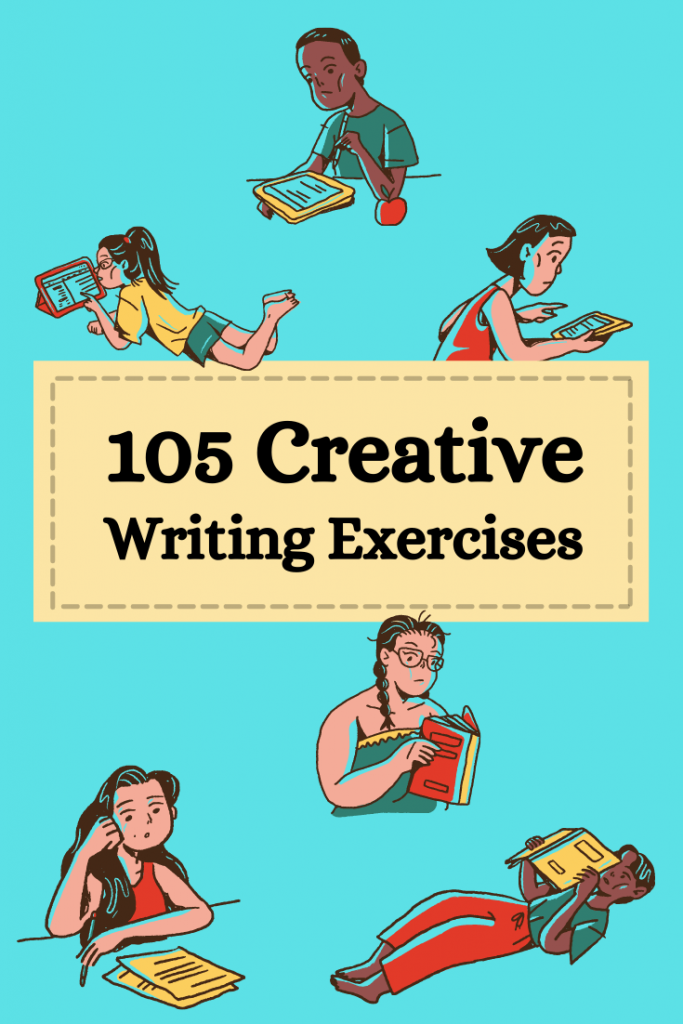
Marty the wizard is the master of Imagine Forest. When he's not reading a ton of books or writing some of his own tales, he loves to be surrounded by the magical creatures that live in Imagine Forest. While living in his tree house he has devoted his time to helping children around the world with their writing skills and creativity.
Related Posts
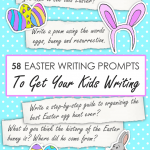
Comments loading...
NEW VIDEO COURSE 🎉
How to Write a Novel
Join Tom Bromley for a writing master class and finish your first draft in 3 months . Learn more →
✍️ 100+ Creative Writing Exercises for Fiction Authors
This curated directory of creative writing exercises was conceived thanks to a collaboration between the top writing blogs of 2024. Use the filters to find and practice specific techniques — and show that blank page who’s boss!
We found 119 exercises that match your search 🔦
The Hammer and the Hatchet
A stranger walks into the general store and buys a hammer, a hatchet, some rope, and an apple. What does he do with them?
Writer's Block
Picket fence.
Describe your house - or the dream house you hope to get some day.
Telephone Directory
It is commonly known that a telephone directory might be the most boring text in the entire world. Here is your challenge: write a page of a telephone directory and figure out SOME way to make it interesting.

NEW VIDEO COURSE
Your story matters. Unlock your potential with daily video lessons from bestselling ghostwriter Tom Bromley, and finish your first draft in just 3 months. Learn more →
Pick a fiction book from your shelf. Go to page eight and find the eighth sentence on the page. Start with that sentence and write an eight-line poem that connects in some way to your work-in-progress. For instance, write from the POV of a character, or set the poem in a story setting. Don't worry about poetry forms. Just write eight lines of any length that flow and explore some aspect of character, setting, or theme.
- Why are you grumpy? I have a hangover.
- Why do you have a hangover? My friend was in a bad accident and I thought he might die?
- Why did you think he might die? His girlfriend lied to me about how serious the accident was.
- Why did she lie about that? She's jealous of our relationship.
- Why? I think she's insecure and has trust issues.
Character Development
The ellen degeneres show.
A talk show is scripted to promote the guest and discuss topics with which the guest is comfortable. Imagine your protagonist on the Ellen Degeneres Show (or The Late Show With Stephen Colbert - whichever show you're familiar with). What questions would be asked of your protagonist? What funny anecdotes would your protagonist share? Write down the reactions of both your protagonist and the host.
- You could say it began with a phone call."
- Michael had watched them both for weeks."
- She remembered the way it was the first time she saw the prison."
- Midsummer, no time to be in New Orleans."
- With the dawn came the light."
Thank you to all our contributors: Almost An Author, Alyssa Hollingsworth, Anne R. Allen, Bang2Write, Christopher Fielden, Darcy Pattinson, Elizabeth S. Craig, Flogging The Quill, Grammar Girl Quick and Dirty Tips, Helping Writers Become Authors, Katie McCoach, Lauren Carter, Insecure Writer’s Support Group, Mandy Wallace, NaNoWriMo, Nail Your Novel, Novel Publicity, One Stop For Writers, Pro Writing Aid, PsychWriter, re:Fiction, The Journal, The Writer’s Workshop, Well-Storied, Women On Writing, writing.ie, Writing-World.com!
Find the perfect editor for your next book
Over 1 million authors trust the professionals on Reedsy. Come meet them.
We have an app for that
Build a writing routine with our free writing app.

1 million authors trust the professionals on Reedsy. Come meet them.
Enter your email or get started with a social account:

101 Creative Writing Exercises
by Melissa Donovan | Feb 7, 2012 | News & Announcements
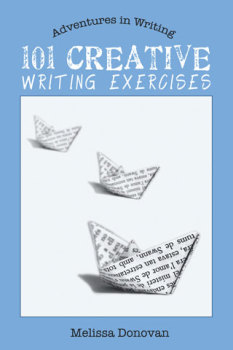
101 Creative Writing Exercises takes you on a journey through different forms and genres. You’ll write fiction, poetry, and creative nonfiction while learning practical writing concepts and techniques.
The exercises in this book are designed to inform and inspire. You’ll get plenty of ideas for new projects along with techniques to enhance projects that you’re already working on.
Best of all, working through these exercises gives you plenty of practice and writing experience.
It’s available in paperback from Amazon and CreateSpace and as an ebook for the Kindle and a variety of other devices.
Also available at Kobo and Sony Reader Store.
- Print Friendly
Sign up to receive news, updates, and exclusive offers.
Recent Posts
- Defiant (A Poem)
- Should We Take Superhero Movies Seriously?
- My Latest Book – Story Drills: Fiction Writing Exercises
- Reality (A Poem)
- My Latest Book: What’s the Story? Building Blocks for Fiction Writing
- News & Announcements
- Thoughts on Writing
Get notified when 101 Creative Writing Exercises is updated
If you already have an account, Log in.

Books, Tattoos & Other Inky Things
When aspiring writer nella has a wild night, her hook-up with the sexy and tattooed baz turns into a wild goose chase when she realizes she lent her only handwritten copy of her first novel to him....

- Writing, Research & Publishing Guides
Promotions apply when you purchase
These promotions will be applied to this item:
Some promotions may be combined; others are not eligible to be combined with other offers. For details, please see the Terms & Conditions associated with these promotions.
Buy for others
Buying and sending ebooks to others.
- Select quantity
- Buy and send eBooks
- Recipients can read on any device
These ebooks can only be redeemed by recipients in the US. Redemption links and eBooks cannot be resold.

Download the free Kindle app and start reading Kindle books instantly on your smartphone, tablet, or computer - no Kindle device required .
Read instantly on your browser with Kindle for Web.
Using your mobile phone camera - scan the code below and download the Kindle app.

Image Unavailable

- To view this video download Flash Player
Follow the author

101 Creative Writing Exercises (Adventures in Writing) Kindle Edition
- Freewriting
- Journaling and Memoir
- Fiction and Storytelling
- Form Poetry and Free Verse
- Article and Blog Writing
- Print length 217 pages
- Language English
- Sticky notes On Kindle Scribe
- Publication date February 4, 2012
- File size 1111 KB
- Page Flip Enabled
- Word Wise Enabled
- Enhanced typesetting Enabled
- See all details
Customers who bought this item also bought

Editorial Reviews
About the author, product details.
- ASIN : B0075T2T08
- Publisher : Swan Hatch Press; 1st edition (February 4, 2012)
- Publication date : February 4, 2012
- Language : English
- File size : 1111 KB
- Text-to-Speech : Enabled
- Screen Reader : Supported
- Enhanced typesetting : Enabled
- X-Ray : Not Enabled
- Word Wise : Enabled
- Sticky notes : On Kindle Scribe
- Print length : 217 pages
- #922 in Writing Skill Reference (Kindle Store)
- #2,112 in Writing Skill Reference (Books)
- #3,145 in Fiction Writing Reference (Books)
About the author
Melissa donovan.
Born and raised in California, Melissa Donovan inherited a love of literature from her mom, who taught Melissa to read by age four. At thirteen, Melissa started penning poetry and song lyrics. Shortly thereafter, journaling became a daily habit, and a writer was born.
Melissa writes fiction, poetry, and creative nonfiction, and she has worked as a technical writer, copywriter, and professional blogger. Her poetry has appeared in convergence: an online poetry of journal and art. To learn more about Melissa's work, visit her website: www.melissadonovan.com.
Melissa is the founder and editor of Writing Forward, a blog that features creative writing tips, ideas, tools, and techniques as well as writing exercises and prompts that offer inspiration and help build skills. To learn more, visit Writing Forward: www.writingforward.com.
Customer reviews
Customer Reviews, including Product Star Ratings help customers to learn more about the product and decide whether it is the right product for them.
To calculate the overall star rating and percentage breakdown by star, we don’t use a simple average. Instead, our system considers things like how recent a review is and if the reviewer bought the item on Amazon. It also analyzed reviews to verify trustworthiness.
- Sort reviews by Top reviews Most recent Top reviews
Top reviews from the United States
There was a problem filtering reviews right now. please try again later..
Top reviews from other countries
- Amazon Newsletter
- About Amazon
- Accessibility
- Sustainability
- Press Center
- Investor Relations
- Amazon Devices
- Amazon Science
- Sell on Amazon
- Sell apps on Amazon
- Supply to Amazon
- Protect & Build Your Brand
- Become an Affiliate
- Become a Delivery Driver
- Start a Package Delivery Business
- Advertise Your Products
- Self-Publish with Us
- Host an Amazon Hub
- › See More Ways to Make Money
- Amazon Visa
- Amazon Store Card
- Amazon Secured Card
- Amazon Business Card
- Shop with Points
- Credit Card Marketplace
- Reload Your Balance
- Amazon Currency Converter
- Your Account
- Your Orders
- Shipping Rates & Policies
- Amazon Prime
- Returns & Replacements
- Manage Your Content and Devices
- Recalls and Product Safety Alerts
- Conditions of Use
- Privacy Notice
- Consumer Health Data Privacy Disclosure
- Your Ads Privacy Choices
We will keep fighting for all libraries - stand with us!
Internet Archive Audio

- This Just In
- Grateful Dead
- Old Time Radio
- 78 RPMs and Cylinder Recordings
- Audio Books & Poetry
- Computers, Technology and Science
- Music, Arts & Culture
- News & Public Affairs
- Spirituality & Religion
- Radio News Archive

- Flickr Commons
- Occupy Wall Street Flickr
- NASA Images
- Solar System Collection
- Ames Research Center

- All Software
- Old School Emulation
- MS-DOS Games
- Historical Software
- Classic PC Games
- Software Library
- Kodi Archive and Support File
- Vintage Software
- CD-ROM Software
- CD-ROM Software Library
- Software Sites
- Tucows Software Library
- Shareware CD-ROMs
- Software Capsules Compilation
- CD-ROM Images
- ZX Spectrum
- DOOM Level CD

- Smithsonian Libraries
- FEDLINK (US)
- Lincoln Collection
- American Libraries
- Canadian Libraries
- Universal Library
- Project Gutenberg
- Children's Library
- Biodiversity Heritage Library
- Books by Language
- Additional Collections

- Prelinger Archives
- Democracy Now!
- Occupy Wall Street
- TV NSA Clip Library
- Animation & Cartoons
- Arts & Music
- Computers & Technology
- Cultural & Academic Films
- Ephemeral Films
- Sports Videos
- Videogame Videos
- Youth Media
Search the history of over 866 billion web pages on the Internet.
Mobile Apps
- Wayback Machine (iOS)
- Wayback Machine (Android)
Browser Extensions
Archive-it subscription.
- Explore the Collections
- Build Collections
Save Page Now
Capture a web page as it appears now for use as a trusted citation in the future.
Please enter a valid web address
- Donate Donate icon An illustration of a heart shape
Adventures in writing : 101 creative writing exercises
Bookreader item preview, share or embed this item, flag this item for.
- Graphic Violence
- Explicit Sexual Content
- Hate Speech
- Misinformation/Disinformation
- Marketing/Phishing/Advertising
- Misleading/Inaccurate/Missing Metadata
plus-circle Add Review comment Reviews
855 Previews
74 Favorites
Better World Books

DOWNLOAD OPTIONS
No suitable files to display here.
EPUB and PDF access not available for this item.
IN COLLECTIONS
Uploaded by station17.cebu on March 17, 2020
SIMILAR ITEMS (based on metadata)
- Features for Creative Writers
- Features for Work
- Features for Higher Education
- Features for Teachers
- Features for Non-Native Speakers
- Learn Blog Grammar Guide Community Events FAQ
- Grammar Guide
14 Creative Writing Exercises to Improve Your Writing

Allison Bressmer
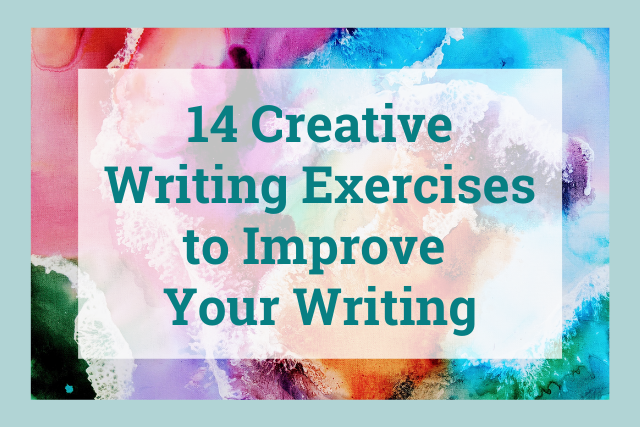
Whether writing is a hobby or a career for you, developing consistent writing habits is key to becoming a better writer.
Blank pages are intimidating. Commit to writing every day to conquer that page and develop your writing skills and style.
By engaging in intentional writing exercises daily, you’ll hone your skills and develop a creative mindset.
These creative writing exercises will get you started immediately!
14 Best Writing Exercises to Try (For Beginners AND Pros)
How do you improve your writing skills, 1. practice freewriting.
To freewrite , set your fingers on your keyboard and start writing; don’t worry about mistakes. Your freewriting is for your eyes only and your goal is simply to get words on the page.
Stuck for a topic? Choose an object you can see—your coffee cup; your sofa; the beat-up (or not) car across the street.
Now, write about the object. You might describe it, tell a story about it, analyze its usefulness—anything is fine. Allow your stream of consciousness to flow and bring ideas to the surface.
The endgame of this writing exercise isn’t to produce great writing about boring objects; it’s to work your writing muscles.
As you search for ways to make these objects interesting, you’ll find unexpected ideas, word choices, and wordplays.
Julia Cameron, author of The Artist’s Way, calls freewriting exercises “Morning Pages” and advises all writers to practice freewriting every day, first thing in the morning, right after waking up.
2. Use Story Starters
Story starters or writing prompts are creative writing exercises that can help you escape a creative rut.
A writing prompt can be anything—a single sentence, a short paragraph, a word. You could even use the first line of a favorite book or newspaper article and take the story in a new direction.
Try building a story from one of these prompts:
- I opened the window.
- We disagreed.
- “It was a pleasure to burn.” (Ray Bradbury, Fahrenheit 451 )
There are many places to find story starters and writing prompts online, such as Daily Prompt .
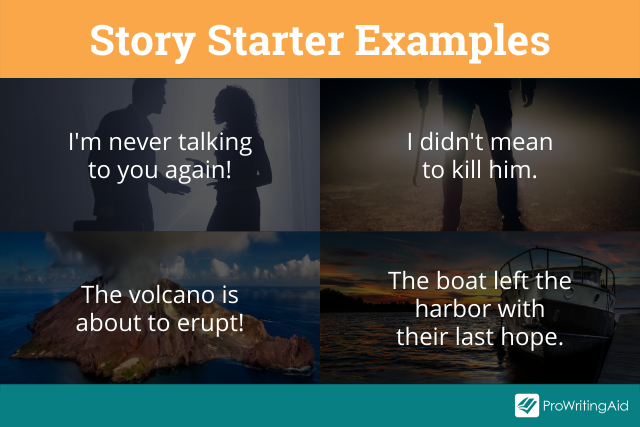
3. Write a “Dear Younger Me” Letter
What would you like to say to yourself five, ten, 20, or 50 years ago? Go ahead and write a letter to that younger self!
Maybe you’ll offer advice or reassurance, relive a special moment with them, or tell them how you’ve changed, or haven’t, since you were “their” age.
Another option: imagine what someone else in your life would say to you at a particular time and write from that person’s perspective.
This activity is a great creative writing exercise and a way to tap into your emotions.
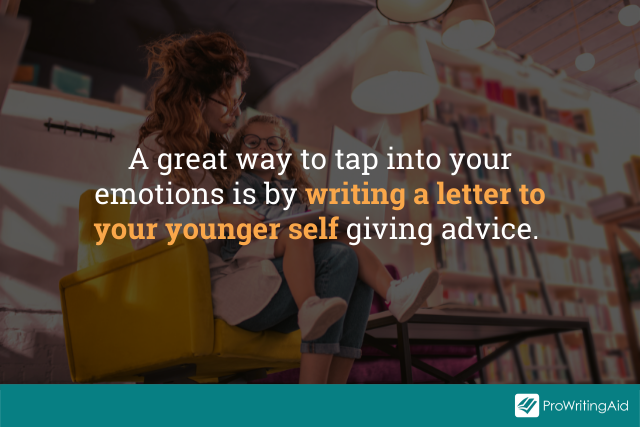
4. Do a Point of View (POV) Switch
Take a segment from a favorite book. Rewrite that segment from a different character’s point of view.
Harry Potter and the Goblet of Fire is written in third-person limited POV. A third-person narrator tells the story, but focuses on Harry’s thoughts and feelings.
In your rewrite, focus on Hermione’s POV. What does she see that Harry doesn’t? What is she feeling and thinking?
As you write, notice how the story changes. Chances are, it will take on a distinct form and tone and may inspire an idea for a new story of your own.
Or rewrite the segment from an entirely different point of view. If the original is told from first-person POV, recreate it with a third-person narrator.
Note what other changes you’ll have to make because of that switch.
Should you include more or less sensory detail ? Should you adjust what’s revealed about each character thinks or feels?
This writing exercise can help you determine what POV you like writing in best and demonstrate how a single story can be told in several ways.
5. Put Yourself in the Middle of the Action

Take a story that resonates with you.
Rewrite the story as if you’re the main character.
Now that you’ve got eyes “inside” the story, can you expand on the details to make a situation more intense or to convey your feelings more fully? Can you think of ways to make the story more engaging?
As you generate ideas you’ll likely find a creative direction for a new story.
6. Eliminate Empty Words
Sentences contain working words and glue words. Working words tell your reader key information, convey emotions, and provide meaning. Glue words hold the working words together.
Streamline your phrasing to only use necessary glue words. Unnecessary glue words are empty words that clutter your sentences and slow your writing down.
There are, there is, there are, in, on, of, this, just are common glue words that can become empty.
In this sentence, “There are two birds sitting on the roof,” the only purpose of the words “there are” is to make the sentence complete. A better strategy is to use a stronger, more specific verb. For example, “Two birds perch on the roof” or “Two birds idle on the roof.”
ProWritingAid’s Sticky Sentences Report highlights sentences with too many glue words. With rephrasing and editing, you can streamline those sentences and keep your work moving fluently.
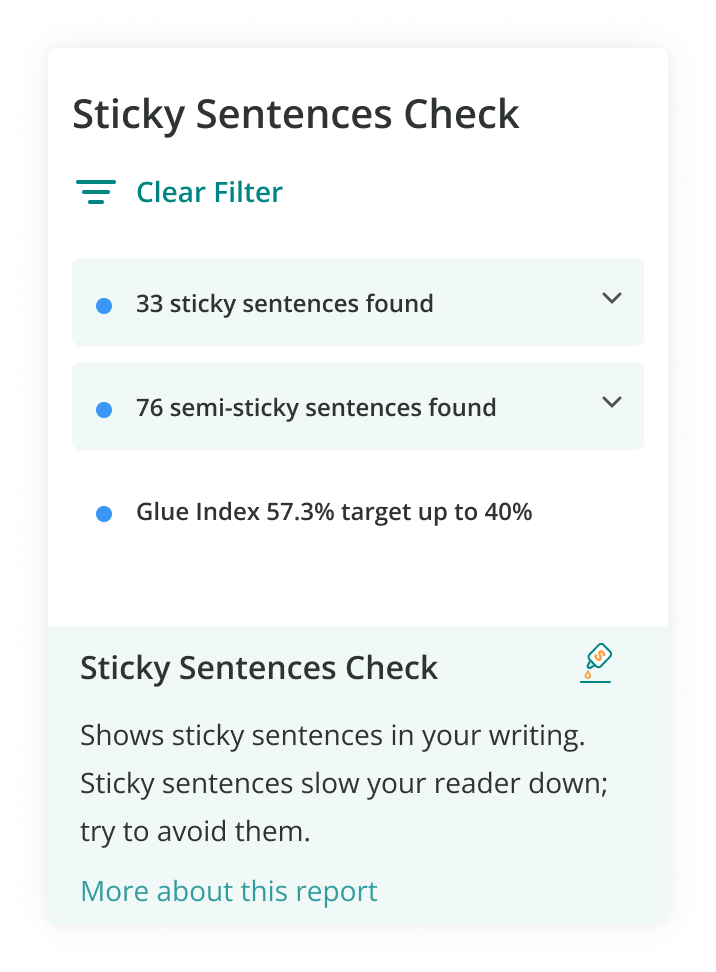
To practice, review a scene in your manuscript and restructure sentences to eliminate glue words.
Replace weak verbs with stronger ones and be economical with your word count. Don’t be afraid to cut; you can always go back and add details as needed.
You’ll find yourself choosing more precise words and constructing leaner, clearer sentences.
7. Outline Dialogue-Heavy Scenes
To create a natural back-and-forth exchange between characters, outline the dialogue in dialogue-heavy scenes first.
Don’t worry about writing descriptions, dialogue tags , or body language cues. Just write the basic dialogue.
Then, go back and evaluate what you need to add to express the characters’ tone, feelings, and personality more fully.

Tip: only use dialogue tags when the speaker’s identity isn’t clear. When they’re needed, it’s best to stick with said and asked . If the exchange needs intensity, add action beats—a telling glance or gesture to heighten the moment.
8. Replace Adjectives with Descriptions
Adjectives are powerful. However, they only tell what’s happening; they don’t give the reader an experience. In this sentence, the adjective tells us Peter’s feelings:
- Watching the movie, Peter was scared!
Replacing this with a description allows the reader to experience fear along with Peter:
- When the headless bleeding corpse slithered out from the box in the attic, Peter screamed and ducked behind the sofa!
Now you try.
Review your draft. Look for adjectives you can replace with descriptions.
Use sensory words so your reader can experience the smells, touches, sights, sounds, or tastes you describe.
ProWritingAid’s Sensory Report helps you balance sensory details by analyzing the emphasis you put on each sense. For example, in this sample, my writing has a heavy sight-emphasis.
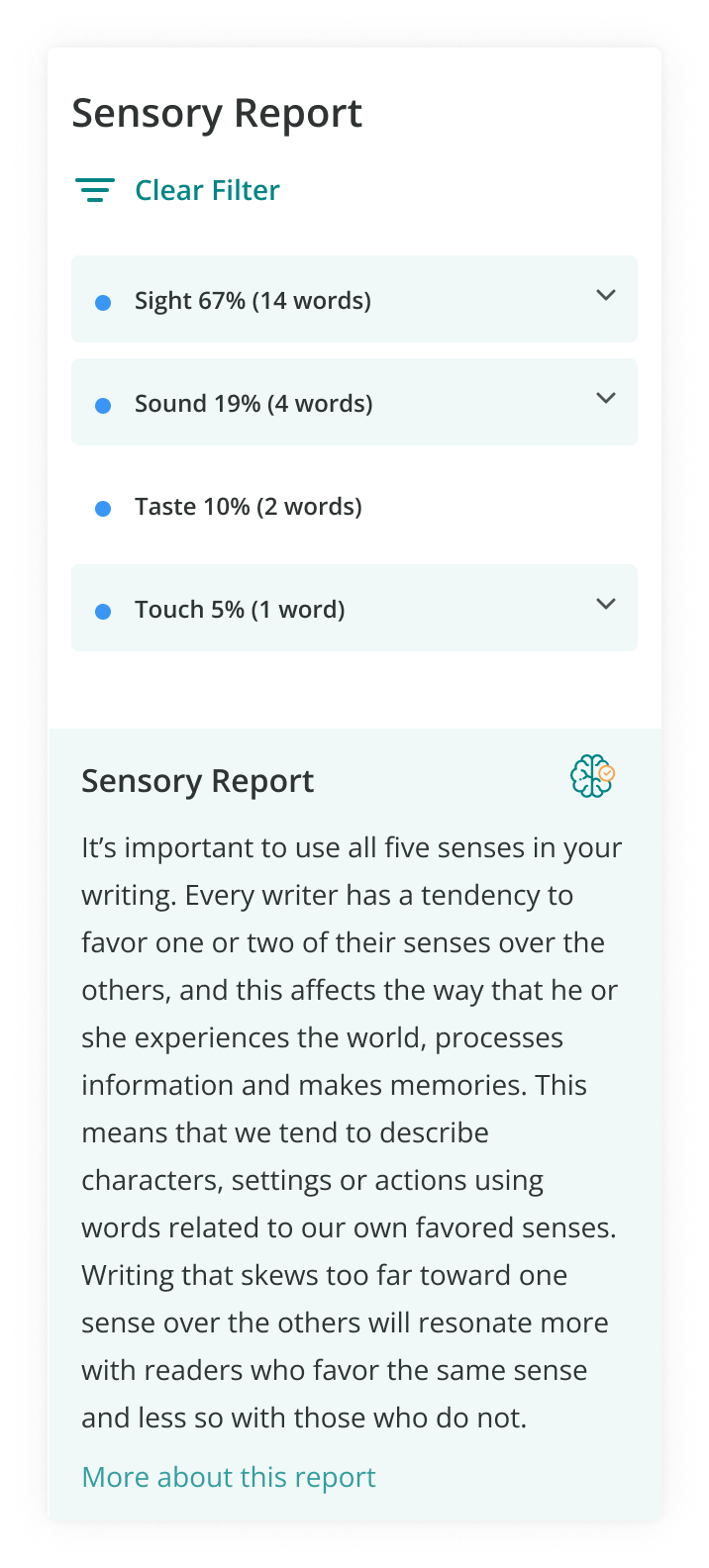
The report measures 67% of the sensory words as appealing to sight, letting me know I might want to make adjustments and create a more balanced experience.
9. Blog Every Day
Blogging every day encourages regular writing habits and is great practice for any writer.
You can consult online resources for tips on how to find a blog topic or niche.

For example, you might decide to focus on food, on being a teacher, on being a millennial, on parenting, or on being a millennial who is a teacher and a parent!
Focus on a different aspect of that topic each day—even if you simply write a “Day in the Life of a _ _ _ _ _” series.
This limited focus provides a framework, but leaves plenty of room for creativity. Explore within that framework as you develop your voice and style.
For an extra challenge, limit the number of words you write. On slower days, the number will serve as a target. On days when ideas flow, it will help you ensure that each word matters.
10. Write a 500-Word Story
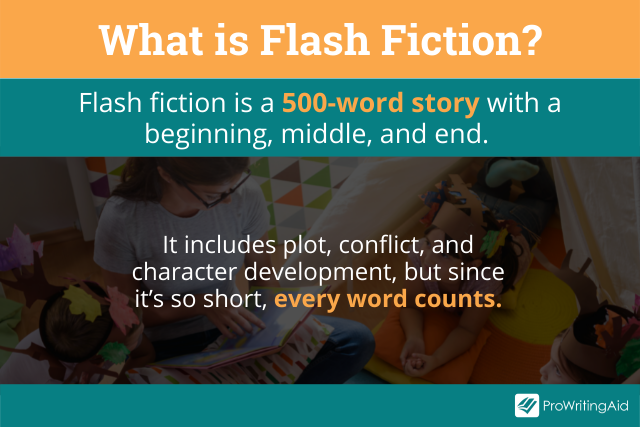
In the writing world, a 500-word story is an example of “ flash fiction. ”
Flash fiction includes all the elements of plot, conflict, and character development, but since it’s so short, every word counts.
Want to try? Write a fully formed story that includes these three words: rose, glass, forbid . Add no more than 497 additional words of your choice!
This exercise will help you focus on story structure, word choice, and powerful imagery.
11. Set a Captivating Mood
Readers should be intrigued by the story and drawn into the setting so they can feel for and with your characters. To make that happen, create a mood.
In Creating Short Fiction , Damon Knight suggests imagining you’re a character in a room. Describe what’s happening in that room and how the character sees, experiences, and responds to those surroundings.
Put the exercise into practice. Imagine an enemy from your past just called you, saying, “I’m outside your door.”
Now describe the space around you. Do everyday objects become potential weapons? Is the air heavy with dread or charged with fear or filled with fury?
12. Be Observant
Pay close attention to your own reality and the emotions you experience in response.
Let’s imagine you’re sitting on a beach. Engage your senses and observe your emotions.
What do you see, hear, taste, smell? What does it feel like to sit in the sun and sand?
Are you feeling excited? Tranquil? Contemplative? What’s triggering that emotion?
Perhaps the roaring waves make you feel small and insignificant—or invigorated! Maybe the ocean is quiet, and the small waves’ gentle rhythm soothes you,
Capture those details and feelings in a journal (or on your phone!). Later, write a scene based in that setting, using those captured details to create sensations and evoke emotions.
13. Practice Empathy
Being sensitive to the feelings of others and seeing the world through their eyes will help you create well-developed characters .
Imagine a mother struggling with a stroller and shopping bags on the bus. Her kids are loud, they press the stop button repeatedly, and she has to take a phone call. Passengers are obviously annoyed.
Write the scene from the mother’s perspective, considering her feelings and frustration. Does she notice the passengers’ anger? Who is calling her? Where is she trying to go?
This exercise also works when you make it personal, though it may be emotionally challenging.
Rewrite a part of your life from the perspective of someone you hold negative feelings about—an ex, an enemy, a boss. Consider their feelings and tell “their side.”
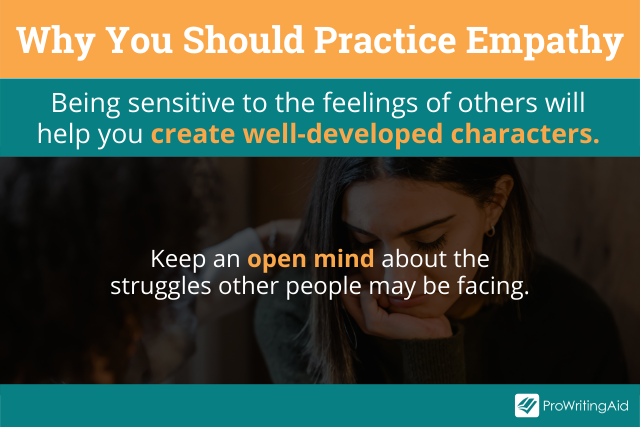
14. Group Writing Exercises
Groups can trigger creative writing ideas.
Give each member time to write one or two themes (one sentence each) for a holiday story.
Shuffle those submissions and redistribute them randomly.
For online groups, post the themes in chat and have everyone use the entry following their own.
Set a timer for ten minutes, during which each writer creates a story fitting their assigned theme.
Then, share your stories! Keep the exercise going with a story swap. Have a new author continue each narrative.
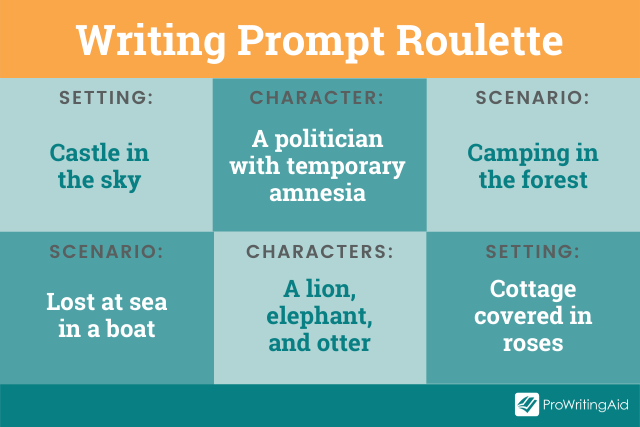
Stephen King once observed:
“If you don’t have time to read, you don’t have the time (or the tools) to write. Simple as that.”
Reading and observing the work of other writers is essential to developing your skills, but isn’t enough on its own.
You must give your writing skills a workout—and these 14 creative writing exercises provide the perfect starting point.
You don’t have to work alone! Professional bloggers, novelists, copywriters, and other writers use ProWritingAid to receive personalized feedback on their work.
It’s a one-stop tool to help you evaluate, edit, and improve your writing. Try it out today.
Do you want to know how to build a world your readers won’t forget? Download this free book now:
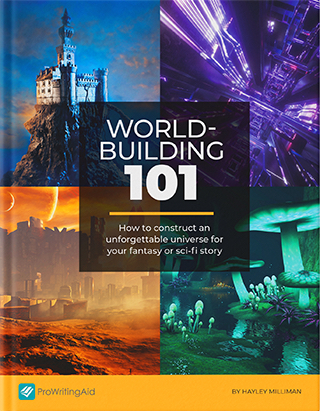
World-Building 101: How to Construct an Unforgettable World for Your Fantasy or Sci-Fi Story!
This guide is for all the writers out there who want to construct an unforgettable world that your readers can’t help but get lost in, learn how to invent species, gods, monsters and more in our immersive guide..

Be confident about grammar
Check every email, essay, or story for grammar mistakes. Fix them before you press send.
Allison Bressmer is a professor of freshman composition and critical reading at a community college and a freelance writer. If she isn’t writing or teaching, you’ll likely find her reading a book or listening to a podcast while happily sipping a semi-sweet iced tea or happy-houring with friends. She lives in New York with her family. Connect at linkedin.com/in/allisonbressmer.
Get started with ProWritingAid
Drop us a line or let's stay in touch via :
ThinkWritten
7 Creative Writing Exercises For Writers
Need a creative lift as a writer? Try these 7 creative writing exercises for writers to boost your writing skills.

We may receive a commission when you make a purchase from one of our links for products and services we recommend. As an Amazon Associate we earn from qualifying purchases. Thank you for support!
Sharing is caring!
Has your creative well run dry? Are you struggling to find inspiration for your next written work? Creative writing exercises could be the answer.
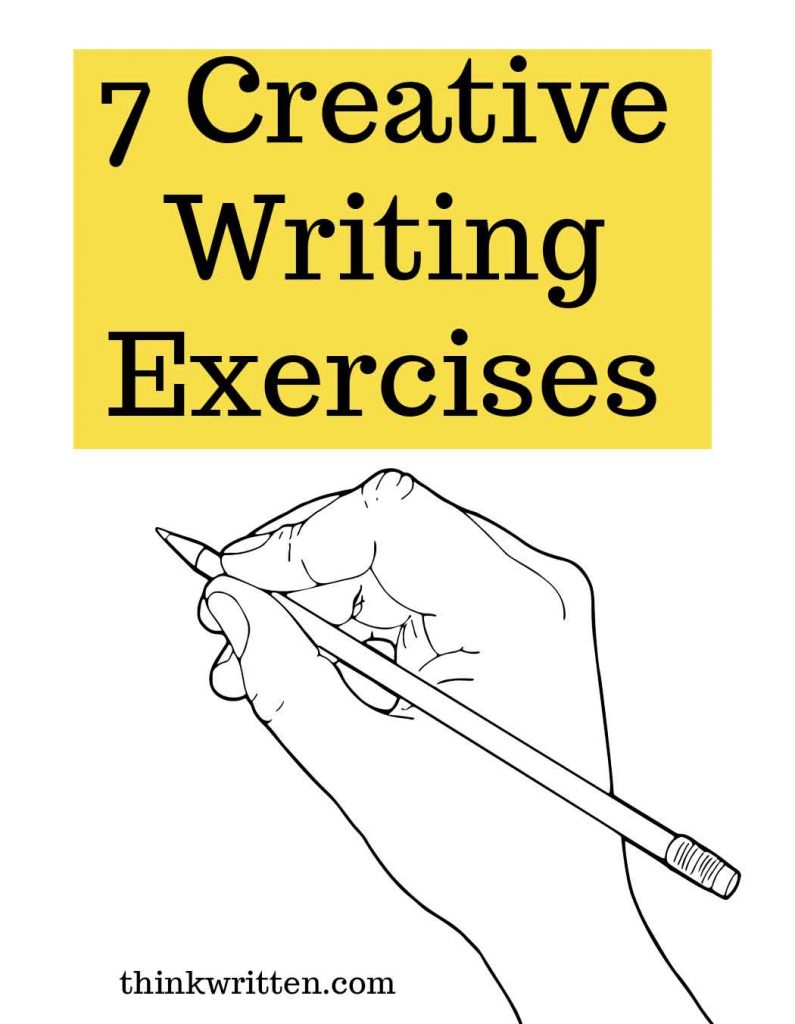
Just like any other skill, the art and craft of writing will benefit from the frequent working and reworking of your practices and habits. Creativity exercises for writers could unlock that writer’s block that you have been struggling to overcome and spur you on to new and exciting creative directions.
What are Creative Writing Exercises?
Creative writing exercises can take on many forms and can mean different things to different people. However, certain elements are common to most examples of creative writing exercises.
They are often produced in short, intense bursts, for one thing, and they are often entirely improvised. Improvisation is one of the earmarks of the creative writing exercises employed by many writers.
One other factor that most creative writing exercises have in common is that they often encourage the exploration and expounding of familiar subject matters in novel ways.
Many classes and guides that focus solely on developing creative writing techniques involve adopting short and spontaneous approaches.
How often should writers practice creative writing exercises?
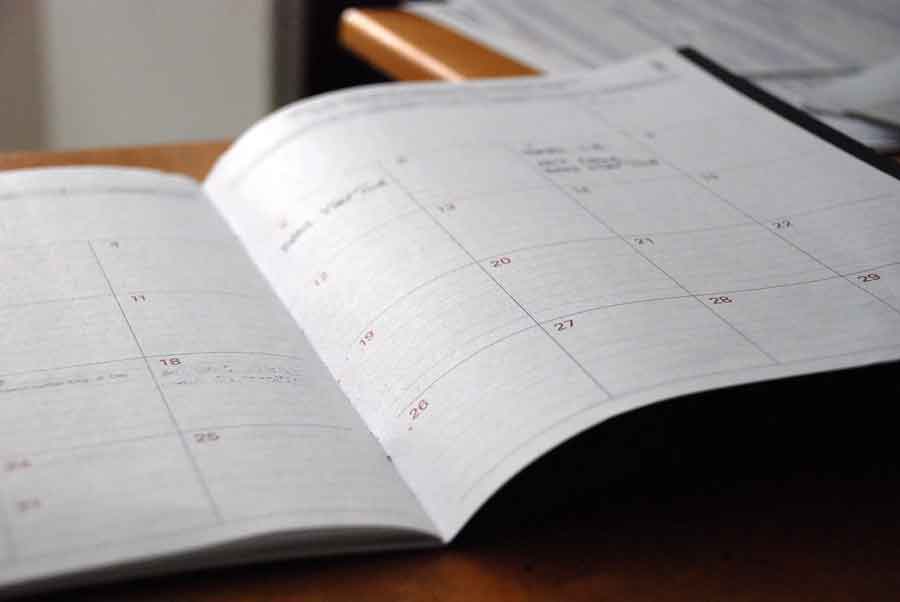
Regardless of what form a creative writing exercise takes, it is smart for writers to adopt these practices and incorporate them into their daily routines. The goal is to expand their writing skills and develop the ability to tell the same story in as many different ways as possible.
Start by writing a few lines once or twice a week, spending only a few minutes each session. Gradually increase the length of each session and how many times you sit down to write per week.
Eventually, you could work up to about ten minutes per session, performing these exercises several times throughout the week.
Here are 7 Creative Writing Exercises for Writers
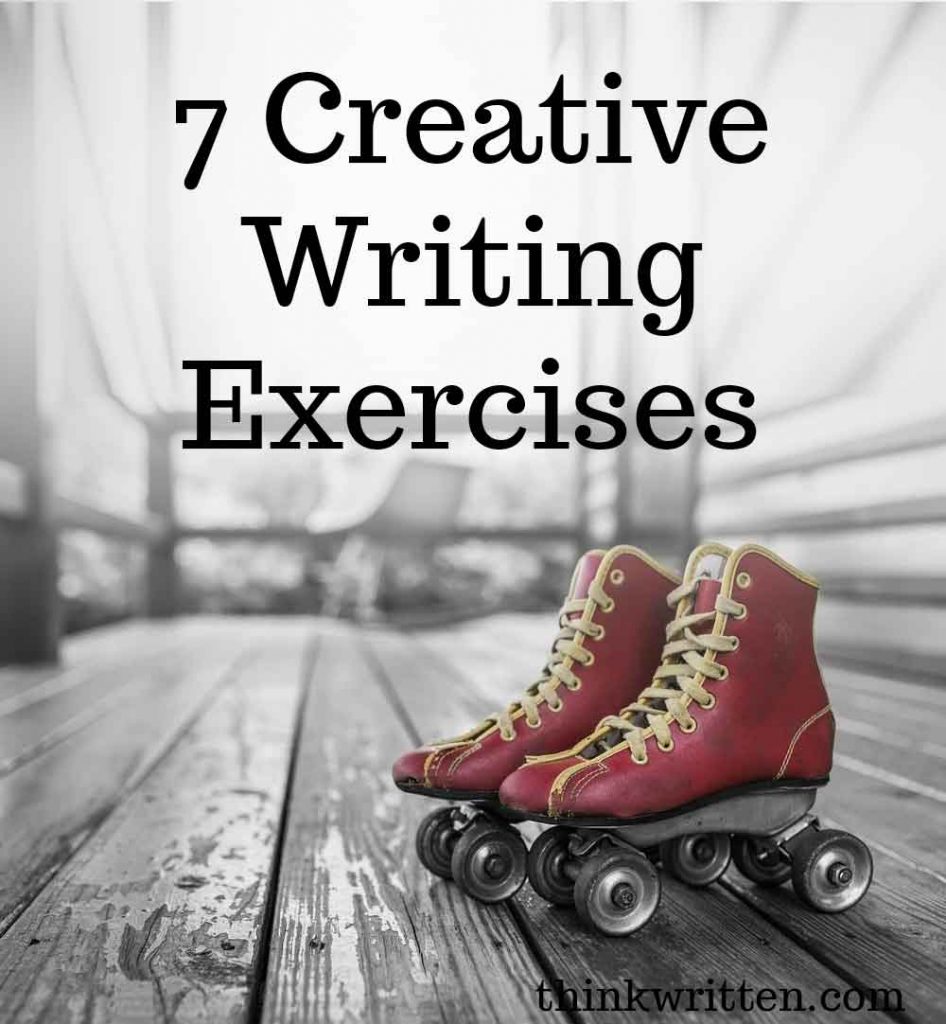
If you feel like taking a break from a writing assignment or are between projects, you can try your hand at these creative writing exercises. They can also serve as inspiration for your next opus or strengthen your creative muscles.
1. Follow your stream of consciousness.

Many writers have become conditioned to feel a great deal of stress or worry about being confronted by a blank page. This exercise will help you address this fear head-on.
Get a piece of paper and start writing the first thing that comes to mind. Don’t even think about what you are writing or edit your thoughts. This type of writing is known as “free writing”. Author Julia Cameron referred to this as the “morning pages” in her award-winning book, The Artist’s Way .
2. Work with different points of view.

If you find yourself struggling with expressing yourself, try switching up your point of view. Take a chapter from your favorite book, or even just a scene if you want to start slow. Write everything that takes place from the point of view of another character. The goal here is to communicate the story in another way.
You could also vary this exercise by writing as if you are the main character by changing their point of view. If the story is written in the first person, try writing it from the third person. Be aware of the details that are omitted when you switch viewpoints. This frequently leads to an interesting new twist to the story.
3. Take advantage of writing prompts.
Writing prompts or story starters can be invaluable writing tools that could encourage you to explore unfamiliar but interesting creative directions. These are sentences or short passages that could serve as springboards for writing spontaneous stories.
We have many writing prompts lists here at ThinkWritten you can use for inspiration, including 365 Creative Writing Prompts , 42 Fantasy Prompts , and 101 Poetry Prompts .
4. Have a Conversation With Yourself
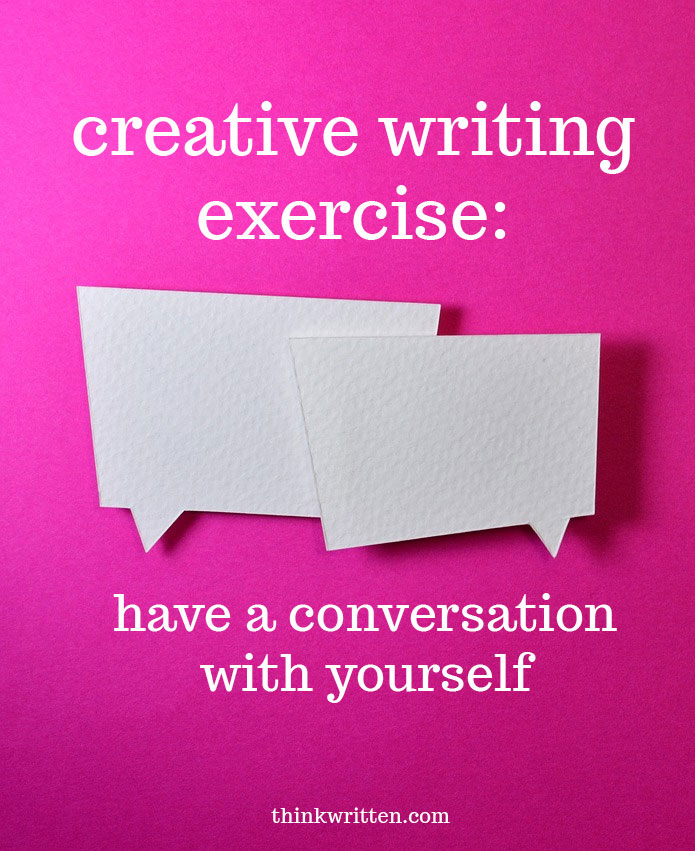
See what it’s like to write a letter or converse with yourself. If you’ve ever wondered what it would be like to have a conversation with your younger self, this is the perfect opportunity to do so.
You can choose any subject you want, from a significant social or political event or some words of wisdom to your younger version. Try to be as honest and as forthcoming as possible. The results might surprise you.
5. Try Writing Flash Fiction

Try to crank out a piece of flash fiction. As with other creative writing exercises, don’t spend too much time at it. Simply sit down in front of the computer or a piece of paper, and begin writing. Flash fiction doesn’t usually go beyond 500 words, so try to keep it short.
Note: It might be helpful to differentiate flash fiction from the freewriting exercise discussed earlier. While freewriting involves generating words and ideas in an unbridled stream of consciousness, flash fiction is more about writing within a set of guidelines. In this particular exercise, try incorporating structural elements such as plots, conflicts, and character development, all in the goal of developing a logical story arc.
6. Practice writing fake ads
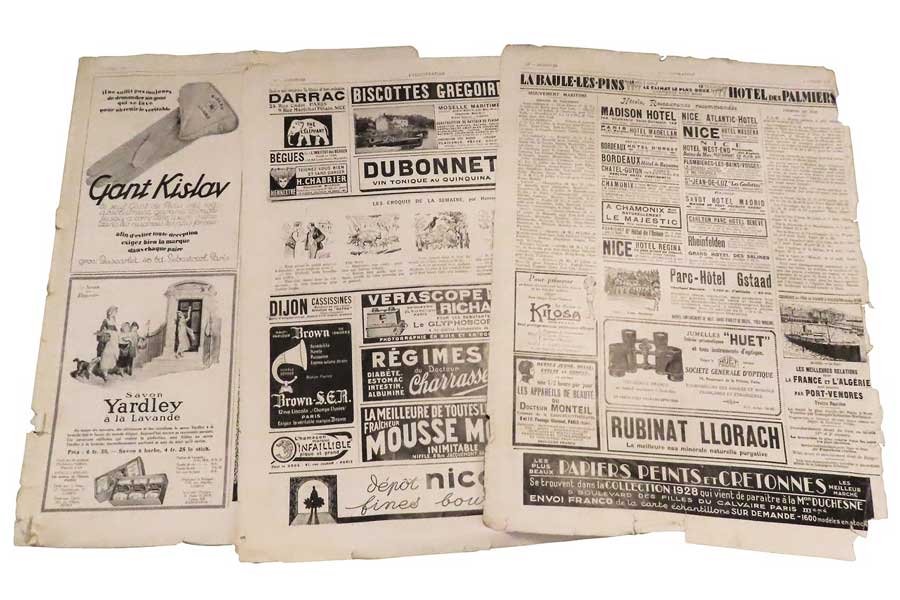
Writing fake advertisements is another potentially useful exercise. Few tasks can flex your creative muscles than trying to sell a product, person, company, or idea. You don’t need a lot to get started either. All you have to do is to select a word at random from a magazine or newspaper and get started writing an ad for it.
It might help to write one ad in a more formal tone, similar to the classified ads published in newspapers. This exercise will train you in using a few words effectively to sell your subject. You can then write another ad in a style similar to that published in online marketplaces, which allow for longer text. In both exercises, try to convince your readers to purchase the product in as definitive terms as possible.
7. Rewrite someone else’s story

Consider adopting a story from someone else and making it your own. Unlike the exercise that involves writing a story from another point of view, this one involves telling the same story from the same viewpoint but using your own words.
It could be any story you want to write about, from something a family member told you about or an urban legend that has long made the rounds of your town.
Whichever story you choose, try to write it as if it happened to you. If certain details are missing–which is often the case with old stories–don’t hold back from adding your own touches. You could even take a well-known story and write it as if you were there when the events took place.
There are only a few of the creativity exercises for writers you can try. There are many more variations that you could use to help you get back into the pattern of writing creatively.
If you ever find yourself stuck and unsure of what your next step should be, consider taking some time off and working on some creative writing exercises instead. After some time, you might find yourself becoming more eager to get back into it and more inspired than ever.
Tell us what you think! Do you enjoy creative writing exercises? Do you have any additional ideas for ways writers can continue to build and work on their writing skills? Share your thoughts in the comments section below!
Eric Pangburn is a freelance writer who shares his best tips with other writers here at ThinkWritten. When not writing, he enjoys coaching basketball and spending time with his family.
Similar Posts

108 Romance Writing Prompts & Love Story Ideas

42 Fantasy Writing Prompts & Plot Ideas
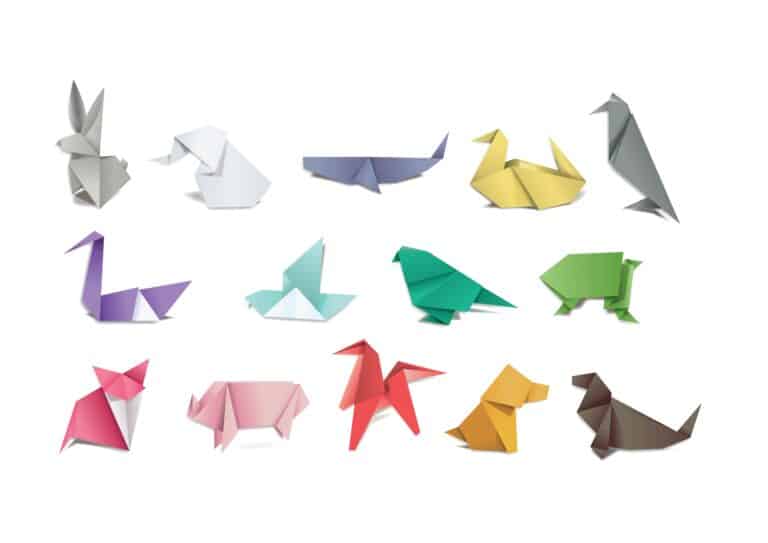
300 Fun Writing Prompts for Kids: Story Starters, Journal Prompts & Ideas
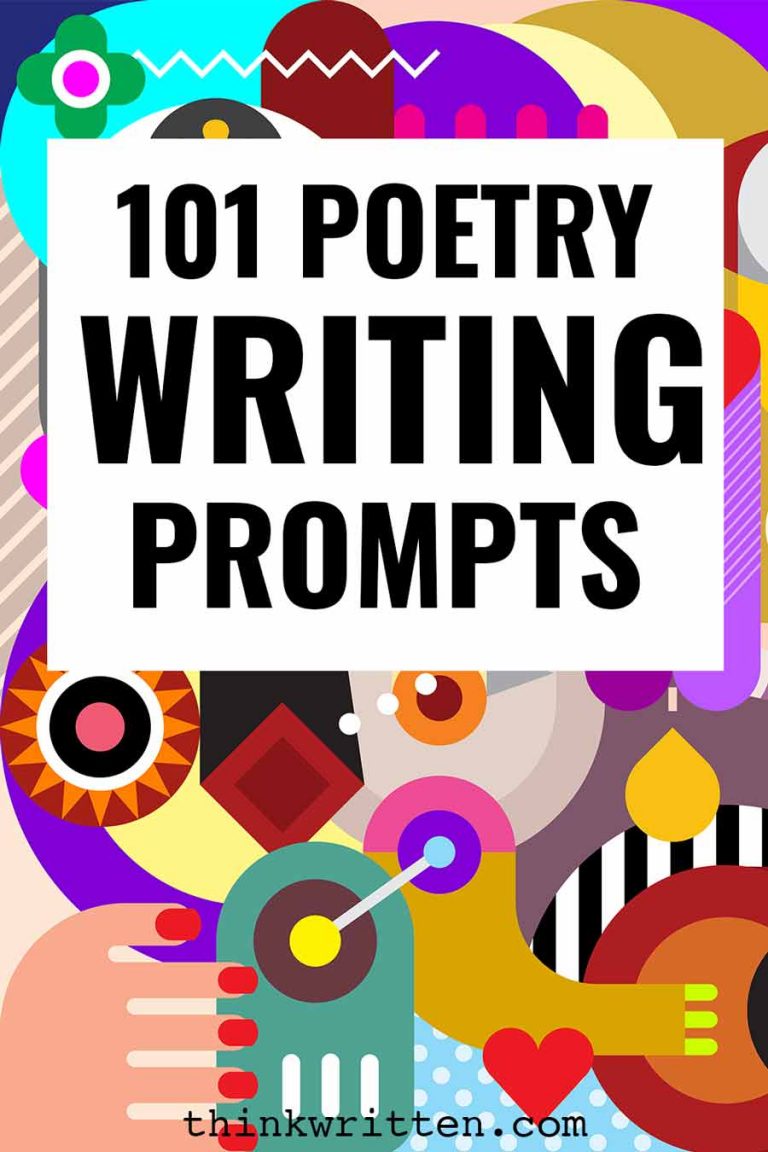
101 Poetry Prompts & Ideas for Writing Poems
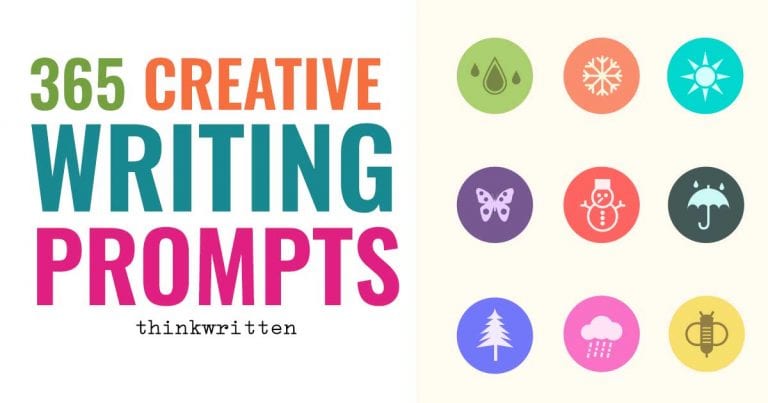
365 Creative Writing Prompts
The article was inspirational but I wish that there was a place to show case our writing. I have written a novel and will love to have someone read and edit it.
Yeah, I agree.
Leave a Reply Cancel reply
Your email address will not be published. Required fields are marked *
Save my name, email, and website in this browser for the next time I comment.

Chris The Story Reading Ape's Blog
Reader – writer – curated resources – & more, from 101 creative writing exercises: cut-and-paste poetry – by melissa donovan…, on writing forward:.

The exercises in this book encourage you to experiment with different forms and genres while providing inspiration for publishable projects and imparting useful writing techniques that make your writing more robust.
This exercise is from “Chapter 8: Free Verse.” It’s titled “Cut-and-Paste Poetry.”
Continue reading HERE
If you enjoyed this article, why not share it with all your friends, online connections and groups - go on - you know you want to, don't be shy - leave a reply cancel reply.
This site uses Akismet to reduce spam. Learn how your comment data is processed .

- Already have a WordPress.com account? Log in now.
- Subscribe Subscribed
- Copy shortlink
- Report this content
- View post in Reader
- Manage subscriptions
- Collapse this bar

IMAGES
VIDEO
COMMENTS
These exercises also offer practical and creative idea-starters for projects that you can develop and eventually publish. Ideal for new and experienced writers alike, this collection of creative writing exercises will enlighten and inspire you. 101 Creative Writing Exercises is designed for individuals or classroom use.
3 . Re a d s e v e r a l p o e ms . F i n d o n e t h a t su i t s yo u r mo o d o r t h o u g h t s a t t h e mo me n t .
Here are over 105 creative writing exercises to give your brain a workout and help those creative juices flow again: Set a timer for 60 seconds. Now write down as many words or phrases that come to mind at that moment. Pick any colour you like. Now start your sentence with this colour.
101 Creative Writing Exercises takes you on an adventure through the world of creative writing. Explore different forms and genres by experimenting with fiction, poetry, and creative nonfiction. Discover effective writing concepts, tools, and techniques. Create projects you can publish. Ideal for new and experienced writers alike, this book ...
Eight. Pick a fiction book from your shelf. Go to page eight and find the eighth sentence on the page. Start with that sentence and write an eight-line poem that connects in some way to your work-in-progress. For instance, write from the POV of a character, or set the poem in a story setting. Don't worry about poetry forms.
101 Creative Writing Exercises takes you on a journey through different forms and genres. You'll write fiction, poetry, and creative nonfiction while learning practical writing concepts and techniques. The exercises in this book are designed to inform and inspire. You'll get plenty of ideas for new projects along with techniques to enhance ...
101 Creative Writing Exercises takes you on an adventure through the world of creative writing. Explore different forms and genres by experimenting with fiction, poetry, and creative nonfiction. Discover effective writing concepts, tools, and techniques. Create projects you can publish. Ideal for new and experienced writers alike, this book will enlighten and inspire you with exciting new ideas.
Whether you're taking a break from a work in progress or are in between writing projects and need some inspiration, regular creative writing exercises help you strengthen your writing process. Incorporate these eight exercises into your writing routine. 1. Let your stream of consciousness run. Start with a blank page.
Blogging is one of Melissa's favorite writing passions, along with fiction and poetry. In 2007, she launched Writing Forward, a block packed with creative writing tips and ideas. Melissa is the author of 101 Creative Writing Exercises and is currently working on the follow-up book in her Adventures in Writing series. Read more
101 Creative Writing Exercises takes you on an adventure through the world of creative writing. Packed with fun and practical tools, techniques, and writing ideas, this book will motivate and inspire you: - Explore different forms and genres by writing fiction, poetry, and creative nonfiction. - Discover effective writing strategies and expand ...
101 Creative Writing Exercises takes you on an adventure through the world of writing. Explore different forms and genres by experimenting with fiction, poetry, and creative nonfiction. Discover effective writing concepts, tools, and techniques. Create projects you can publish.
84 ratings7 reviews. 101 Creative Writing Exercises takes you on an adventure through the world of creative writing. Explore different forms and genres by experimenting with fiction, poetry, and creative nonfiction. Discover effective writing concepts, tools, and techniques. Create projects you can submit and publish.
101 Creative Writing Exercises takes you on an adventure through the world of creative writing. Explore different forms and genres by experimenting with fiction, poetry, and creative nonfiction. Discover effective writing concepts, tools, and techniques. Create projects you can publish. Ideal for new and experienced writers alike, this book ...
101 creative writing exercises takes you on an adventure through the world of writing. Explore different forms and genres by experimenting with fiction, poetry and creative nonfiction. Discover effective writing concepts, tools, and techniques. Create projects you can publish. Ideal for new and experienced writers alike, this book will ...
This activity is a great creative writing exercise and a way to tap into your emotions. 4. Do a Point of View (POV) Switch. Take a segment from a favorite book. Rewrite that segment from a different character's point of view. Harry Potter and the Goblet of Fire is written in third-person limited POV.
5. Try Writing Flash Fiction. Try to crank out a piece of flash fiction. As with other creative writing exercises, don't spend too much time at it. Simply sit down in front of the computer or a piece of paper, and begin writing. Flash fiction doesn't usually go beyond 500 words, so try to keep it short.
Today's poetry writing exercise comes from my book 101 Creative Writing Exercises. The exercises in this book encourage you to experiment with different forms and genres while providing inspiration for publishable projects and imparting useful writing techniques that make your writing more robust. This exercise is from "Chapter 8: Free ...